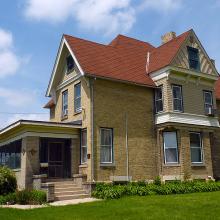unconstitutional

Image via Rena Schild/Shutterstock.com
On June 26, the U.S. Supreme Court decided to hear during its next term a case regarding President Trump’s ban on travel into the U.S. for people from six countries whose populations are majorly Muslim. In doing so, the Supreme Court permitted a revised version of President Trump’s ban to go into effect immediately until the case is heard. The Supreme Court’s next term will begin in October.
Nearly 200 religious and civil rights groups are petitioning President Obama to dismantle the regulatory framework behind a Homeland Security program critics say discriminates against Muslims and Arabs.
President-elect Donald Trump has appointed one of the architects of the program, Kris Kobach, to his transition team. That, and Trump’s own calls on the campaign trail for “extreme vetting” of immigrants, have led some to believe that he will revive the National Security Exit-Entry Registration System.
The American Civil Liberties Union collected more than $11 million and 150,000 new members. The Southern Poverty Law Center’s Twitter account gained 9,000 followers. And the Anti-Defamation League, which fights anti-Semitism and other bigotries, saw donations increase fiftyfold.
In the days since Donald Trump won the presidency, these spikes, in support for groups that defend religious and other minorities, speak to a fear that the president-elect will trample on their rights — or at least empower those who would.
DOMINIC WAS 17 years old when the incident occurred. Dressed and ready to go to church, he walked out of his home in the Bronx just a few minutes ahead of his parents. All of a sudden, undercover police officers came out of nowhere, grabbed him, and threw him to the ground. As his parents came outside and discovered this scene, fear gripped them as they screamed to the officers, “What are you doing to my son?” “He fits the description. You stay out of this!” the officers replied. His mother pleaded, “Sir, he hasn’t done anything. He has been with us the whole time.”
While legal and political measures are being undertaken by opposing factions for and against the stop, question, and frisk practices of the New York Police Department, the debate rages. The fact remains, no matter what side you are on, considerable damage has already been done to a generation of African Americans and Latinos (particularly youth), not only in New York City but in other cities that have adopted this model of policing.
According to a recent analysis by the New York Civil Liberties Union, in 2012 “New Yorkers were stopped by the police 532,911 times. 473,644 were innocent (89 percent).” This means that out of more than half a million who were stopped, only 59,267 people were charged with any sort of illegal activity. In addition, 284,229 (55 percent) were African American and 165,140 were Latino (32 percent), most of them law-abiding citizens who were targeted, stopped, questioned, frisked, and found innocent. What is further troublesome is that not all actions conducted by officers were documented, so the actual number of those impacted negatively is even higher.
A federal judge has ruled that an Internal Revenue Service exemption that allows clergy to shield a portion of their salary from federal income taxes is unconstitutional.
The clergy housing exemption applies to an estimated 44,000 ministers, priests, rabbis, imams, and others. If the ruling stands, some clergy members could experience an estimated 5 to 10 percent cut in take-home pay.
The suit was filed by the Wisconsin-based Freedom from Religion Foundation on grounds that the housing allowance violates the separation of church and state and the constitutional guarantee of equal protection. The group’s founders have said that if tax-exempt religious groups are allowed a housing subsidy, other tax-exempt groups, such as FFRF, should get one, too.



